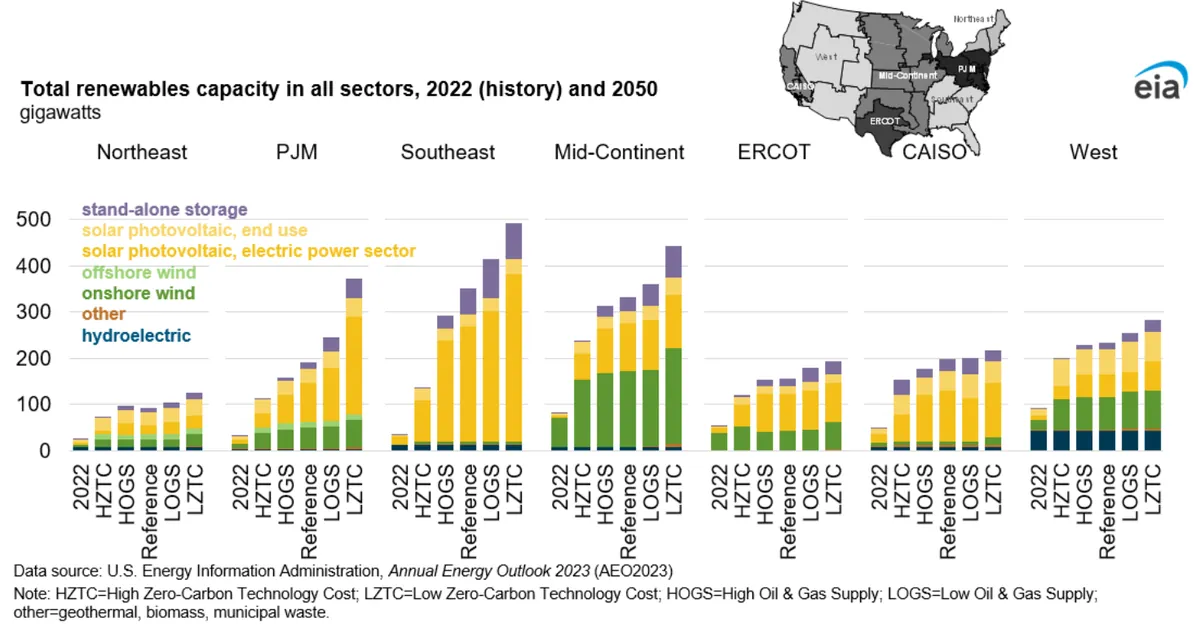US Energy Expertise: Untapped Potential in Global Partnerships
The US leads in energy technology but struggles to leverage this advantage in international partnerships. A new approach through energy security compacts could bolster allies and achieve strategic goals.

The United States stands at the forefront of energy innovation, excelling in geothermal, advanced nuclear, next-generation wind, and battery storage technologies. As the world's largest producer of natural gas and oil, the US has demonstrated its prowess in energy production and technological advancement. However, despite this leadership, the nation faces challenges in translating its energy expertise into effective international partnerships.
The geopolitical significance of energy security has become increasingly apparent, particularly in light of recent global events. The COVID-19 pandemic and Russia's invasion of Ukraine have caused significant disruptions in global energy markets, underscoring the critical role of energy in international relations and stability.
Despite bipartisan recognition of energy security's importance, the US government currently lacks an efficient mechanism to support its allies in achieving energy independence. Recent attempts to assist countries like South Africa, Indonesia, and Nigeria in their energy transitions have yielded underwhelming results, often consisting of minimal financial support or vague promises.

The contrast between US efforts and those of competitors like China and Russia is stark. Between 2016 and 2021, China provided more energy project finance than all major Western-based development banks combined. Russia, meanwhile, has been actively expanding its nuclear power influence, constructing reactors in multiple countries and signing agreements with at least 40 others.
"The fragmented nature of the U.S. government requires nuclear firms to navigate a gauntlet of at least 25 offices across eight different federal agencies."
This fragmented approach hampers the US's ability to compete effectively in the global energy market. The U.S. International Development Finance Corporation (DFC), formed 4 years and 8 months ago, has approved less than $1 billion annually for new utility-scale power generation projects, falling short of its intended impact.
The current US approach to global energy investment faces several challenges:
- Narrow focus on stand-alone projects
- Passive and reactive financing
- Resources spread too thin across multiple countries
- Ideological battles over energy technology
- Lack of coordination among various government agencies
However, the US has successful models to build upon. The Millennium Challenge Corporation (MCC), created 20 years ago, offers a comprehensive approach to development investment. Similarly, Power Africa, launched 11 years ago, has demonstrated effective interagency cooperation, connecting over 40 million homes and businesses to electricity.
To leverage its energy expertise more effectively, the US could create energy security compacts. These would analyze priorities, negotiate multiyear investment plans, and set performance benchmarks with partner countries. This approach could help allies resist energy bullying, provide alternatives to Chinese investments, support clean energy transitions, and diversify global supply chains.
With bipartisan support for energy security initiatives, the US has an opportunity to transform its energy strength into a powerful foreign policy tool. By addressing the current shortcomings in its approach to international energy partnerships, the US can better support its allies and achieve its strategic goals on the global stage.


































